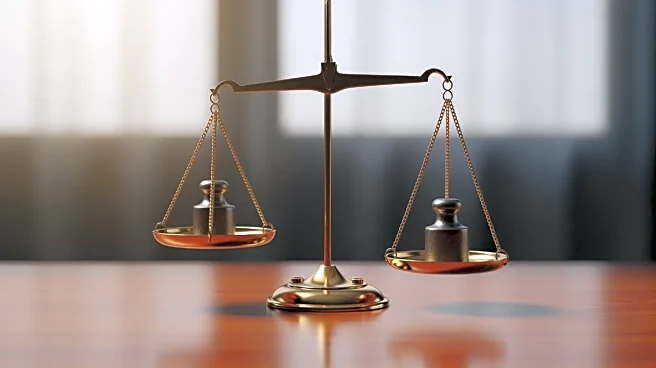What's Happening?
Israel's governing coalition has advanced two controversial bills, striking deals with ultra-Orthodox parties amid a boycott over the stalled military conscription exemption law. The Knesset approved a bill expanding
rabbinical courts' authority to arbitrate civil disputes and a communications reform bill creating a single broadcast regulator. The communications bill aims to overhaul broadcasting regulations, reducing licensing requirements and monitoring competition. Attorney General Gali Baharav-Miara warned the reform could undermine media independence. The rabbinical courts bill would allow religious courts to arbitrate civil cases with consent from both parties, restoring a practice restricted by a 2006 Supreme Court ruling.
Why It's Important?
These legislative moves reflect ongoing tensions within Israel's political landscape, particularly regarding the influence of ultra-Orthodox parties. The communications reform could significantly impact Israel's media landscape, potentially increasing political and commercial influence over news coverage. The expansion of rabbinical courts' authority raises concerns about the separation of religion and state, and the potential for religious courts to influence civil matters. These developments could affect public policy and societal norms in Israel, with implications for media freedom and civil rights.
What's Next?
The bills will undergo further discussion in committee before second and third readings. The coalition's ability to advance these bills may hinge on continued negotiations with ultra-Orthodox parties. The outcome could influence future legislative efforts and the balance of power within Israel's government. Stakeholders, including media organizations and civil rights groups, may respond to these developments, potentially leading to public debate and legal challenges.
Beyond the Headlines
The legislative changes could have long-term implications for Israel's democratic institutions and societal norms. The expansion of religious courts' authority may affect civil rights and the secular nature of the state. The communications reform could alter the media landscape, impacting journalistic independence and the diversity of viewpoints. These developments highlight the complex interplay between religion, politics, and media in Israel.








